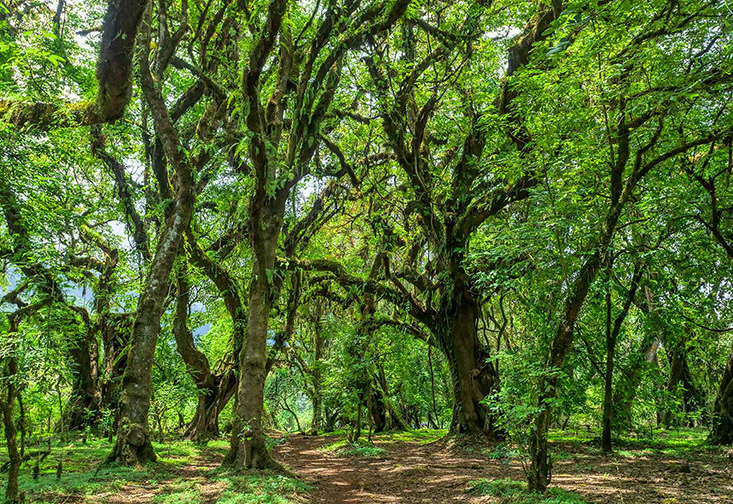Mass conflict can have a devastating impact on humans. But does it have a similar impact on the natural world?
USFSP Professor of Anthropology Kathryn Weedman Arthur has been awarded $270,000 by the National Science Foundation to investigate the relationship between human conflict and the preservation of natural resources. Arthur and an international team of researchers will collaborate with a community in southern Ethiopia to document the impact of their history, local practices and religious beliefs on the protection of natural resources in the region.
The team will spend the next four years exploring more than 200 forests in southern Ethiopia, an area with some of the oldest human habitation on the planet. They hope to discern whether the large-scale tragedy of the slave trade from the 13th through 19th centuries greatly degraded the region’s forests, or led to preservation of the forests and human healing.
“Does incredible conflict lead to not caring about a resource or being unable to? Or does incredible conflict somehow lead to a society protecting that resource for economic reasons, as well for providing healing through memorializing a landscape connected to their ancestors?” asked Arthur.
For example, researchers may uncover that many of these forests and their functions were greatly diminished at one time, which will then spark inquiries into which lands were able to recover in the aftermath of conflict and why. They may determine that the many defense structures and walls found in the forests of southern Ethiopia were constructed to defend the resource from invaders.
What they find out could provide essential guidance on managing natural resources today, as societies deal with large-scale changes from climate change to overpopulation.
“Through this study, we hope to learn from an indigenous community about their present and past practices concerning their forested environments, to examine how people responded in the face of conflict and whether their actions led to forests being conserved or destroyed,” said Arthur.
Forests provide timber, paper, fuel-wood, clean air, habitat and biomedicine while also stabilizing soils for agriculture. Scholars have debated whether the forests of Ethiopia have always remained pristine environments preserved through conservation efforts by local communities or if the forests have changed dramatically over time due to conflicts.
“Africa is thought of as this pristine place, and there is a belief that forests have been there forever and never changed,” explained Arthur. “But at the same time, Africa is the continent where people have lived the longest and with a history of conflict.”
Arthur and researchers from the U.S., Italy, France and Ethiopia hope to provide answers through a variety of means. Some researchers will map and conduct small scale testing of the forests by retrieving soil samples and artifacts, to date and reconstruct the environmental and cultural history of the forests. Others will conduct environmental assessments of the living forests to determine the biodiversity and whether there are native species in the forests. While others will study hundreds of years of ceramic and stone tools, identifying the chemical composition of these objects to trace the source of materials and trade networks and see how this has changed over time.
Arthur has been working in this region and studying the people of southern Ethiopia for more than 20 years. Her research focuses on exploring how knowledge and technology are learned and embedded in specific cultural constructs. In particular, she has focused her work on the Gamo people of Ethiopia.
“For the last 13 years I have been working with this community on understanding their heritage, what is important to them and how they perceive their history,” said Arthur.
“One of the big things that is important to them are these sacred forests, and I believe the history of these forests have a lot to tell them as well as us.”
